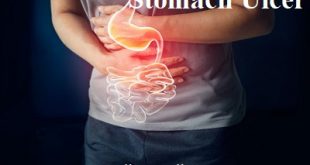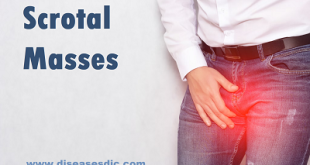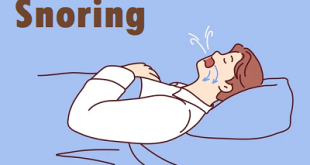Definition
Polyps are the unusual growth of tissue in any organs of the body that has blood vessels. It grows mostly in colon, nose or uterus. Sometimes in the stomach. Stomach polyps are also called as gastric polyps, which develops masses of cells in the stomach lining. It doesn’t cause any symptoms and it is often found when your doctor diagnoses some other problem. Mostly it won’t become cancer, but in some cases, it may increase the risk of stomach cancer in forthcoming days. It is common at the age of 50 and above. Treatment will vary depending upon the type of stomach polyp that you have. Treatment may involve removing or monitoring the polyp for its changes.
Stomach polyps or Gastric polyps
Polyps in large intestine
Prevalence
The prevalence of stomach polyps varies worldwide. One US study found the gastric polyp prevalence of 4%. Mostly the fundic polys have more prevalence of about 80%. It is because the fundic polyps rise due to the intake of proton pump inhibitor for a long time and it may become the dominant type. Whereas the polys due to Helicobacter pylori gastritis (hyperplastic and adenomatous) has become less common.
Types of stomach polyps
Some main types of stomach polyps are as follows:
Gastric polyps types
Fundic gland polyps: It is the most common type of gastric polyp present in upper endoscopy. These polyps can be sporadic or can be associated with an inherited polyposis syndrome.
Hyperplastic polyps: It is a rare and characterized by the development of multiple colorectal serrated lesions, most often a mixture of hyperplastic polyps and flat serrated adenomas. Patients with hyperplastic polyposis syndrome (HPS) have a high lifetime risk of developing colorectal cancer (up to 50%).
Adenomatous polyps: This type of polyps that can cause colon cancer. The growth is associated with DNA changes in the lining of the colon.
Inflammatory fibroid polyps: Inflammatory fibroid polyps (IFP) are benign mesenchymal tumors, which originate from the submucosa of the stomach or the small bowel. IFP occur rarely in the colon and in the esophagus.
Gastroneuro endocrine tumor polyps: Formation of multiple polyp-like lesions sized 0.2–1.5 cm in the fundus and body of the stomach.
Gastrointestinal stromal tumor polyps: It is the common mesenchymal neoplasms in the gastrointestinal tract.
Leiomyoma polyps: It is the rare noncancerous lesion that forms in the large intestines. It will not increase the risk of developing colon cancer.
Risk factors
Risk factors for stomach polyps include:
- Helicobacter pylori, which is the common cause of gastritis
- Some medicine that treats gastroesophageal reflux disease, like the proton pump inhibitor
- The main risk for stomach polyps and colon polyps is familial adenomatous polyposis
- Age 50 and over
Causes of stomach polyps
Stomach polyp is due to many reasons. Something that causes your stomach cells to grow unusually can lead to stomach polyps. Some other causes of stomach polyps include:
- Pernicious anemia
- Erosion in stomach due to ulcer
- Pylori infection
- Chronic inflammatory stomach issues
- Regular use of proton pump inhibitor medicines include omeprazole
Some of the causes may increase your risk of other types of stomach polyps. For example, Helicobacter pylori may raise the risk of hyperplastic polyps and proton pump inhibitor medicines may raise the risk of fundic gland polyps.
Clinical manifestation and pathologic features
Usually, gastric polyp’s symptoms may appear in few of its types. The symptoms of each type are unique and different.
Hyperplastic polyps
Hyperplastic polyps are asymptomatic at starting stage. Hyperplastic polyp symptoms usually appear in late adulthood and discovered incidentally when an endoscopy is performed. In this type the symptoms in both men and women are same.
- Gastrointestinal bleeding due to the erosion of epithelial surface.
- Bleeding may be occult and sometimes overt.
- Intermittent occlusion when pedunculated polyps in the antrum prolapse into the pylorus.
Fundic gland polyps
Fundic gland polyps are asymptomatic, exposed accidentally during endoscopy diagnosis.
- Abdominal pain.
- Vomiting
- Obstruction
Adenomatous polyps
Typically adenomatous polyps cause few symptoms as follows.
- The most common symptom is painless rectal bleeding
- Nausea or vomiting if there is a large polyp
- pain, constipation, or diarrhea that lasts longer than one week
Inflammatory fibroid polyps
Most of the inflammatory fibroid are asymptomatic but larger size polyps cause few symptoms as follows.
- Anaemia,
- Abdominal pain
- Gastric outlet obstruction
- Early satiety
Gastroneuro endocrine tumor polyps
- Peptic ulcer disease
- Abdominal pain
- Diarrhea
- Bleeding
Gastrointestinal stromal tumor polyps
- Nausea and vomiting
- Fatigue due to anemia,
- Pain or discomfort in the abdomen
- Vomiting blood
- Bowel obstruction
- Blood in the stool
Leiomyoma polyps
- Bleeding from the anus
- Mucus mixed with stools
- Diarrhea
- Constipation
Complications of stomach polyps
- Stomach ulcers
- Even after the excision of polyps bleeding occur
- Adenomatous polyps, Gastrointestinal stromal tumor polyps, and Gastroneuro endocrine tumor polyps can turn into cancer
Diagnosis and Examination
Colonoscopy: It is performed when the patient is sedated to visualize the polyps that present in large intestine, rectum, and colon. A tube with a camera at its end is inserted through the anus and your doctor visualizes the presence of polyps.
Polyp Biopsy: To determine whether the polyp is cancerous or not, a sample of tissue from the polyps is removed for pathology study. Esophagogastroduodenoscopy (EGD) is performed to take a small tissue sample from the polyps that are located in the stomach.
Barium enema: In this procedure, liquid barium is injected into the stomach through the mouth and special X-ray is used to visualize the presence of polyps. Since polyps are dark enough, it appears as white in color in the X-ray image.
Stool test: Your doctor will prescribe for stool test in which the stool sample is microscopically examined to find any blood in your stool. Blood in the stool is a sign of stomach polyps.
CT colonography: CT scan is used in this procedure to get an image of colon polyps. This technique combines the images of rectum and colon to get a 2D or 3D image. Finally, it can show ulcers, swollen tissues around the polyps.
Treatment and medications
Treatment for gastric polyps depends on the type of polyp. The most preferred method for the polyp’s treatment is endoscopy.
Endoscopy:
- High-frequency electrocoagulation method: A high frequency of the current is generated by the thermal effect of tissue coagulation and necrosis to remove the polyps. The current frequency is about 300 kHz, the output power of 30 ~ 80W.
- Microwave burning method: A microwave is used to polarize the thermal effect of the principle of heat and solidification and gasification of the polyp burning.
- Laser method: High energy laser is passed through an optical fiber into an endoscopic hole. When laser contacts with the tissue it generates high thermal energy and do tissue coagulation and necrosis of polyp.
- Nylon and rubber band ligation: The root of the polyp is ligated using a nylon or rubber bands and left for certain periods. The blood flow to the polyp stops as the root is tightly ligated and disparately polyps will shed and a shallow ulcer occur.
- Freezing method: A refrigerant is sprayed on polyp through a catheter into endoscopic tube.
- Alcohol injection method: Anhydrous alcohol is injected at the base of polyps with 0.5ml per point of injection through an endoscopic tube.
- Radiofrequency (RF): Electromagnetic waves of about 200 ~ 750kH are applied into the polyp tissue and the specific heat generates water evaporation. This makes polyps to dry and necrosis.
Polypectomy: Adenomatous polyps, gastrointestinal stromal tumor polyps, gastroneuro endocrine tumor polyps, and largely sized polyps with more than 2cm are removed through a surgery.
Anti HP treatment: To reduce the H. Pylori (HP) which causes infection in the stomach antibiotics can be used to reduce gastritis generated by H.pylori because it is responsible for gastritis. 10 days to 2 weeks of one or two effective antibiotics, such as amoxicillin, tetracycline (not to be used for children <12 yrs.), metronidazole, or clarithromycin, plus either ranitidine bismuth citrate, bismuth subsalicylate, or a proton pump inhibitor.
Herbal treatment for polyp
Aloe vera: Aloe vera possesses good antibacterial and anti-inflammatory activity. Take 2 tablespoons of Aloe Vera juice daily.
Cranberry: cranberry is a rich source of vitamin C, which helps in fighting against stomach polyps. Take 7 to 10 cranberries daily or a cup of cranberry juice every day.
Cayenne: Cayenne relief the pain associated with polyps in the stomach. Take one cayenne capsule every day.
Garlic: Since garlic is rich in antibacterial and anti-inflammatory properties, daily consumption of garlic reduces the inflammation produced due to the polyps. Peel 3-5 garlic pieces and smash it using some wooden tool thoroughly. Then keep it out from contamination of metals and leave it 15 minutes undisturbed. Consume it with a glass of water daily.
Goldenseal: it is a masterpiece in reducing the ulcer, stomach polyps, and colon polyps. Take one goldenseal capsule daily. It acts well in reducing pain and inflammation.
Prevention of stomach polyps
- Avoid high acidic fruits like grapefruit, oranges to minimize stomach irritation.
- Treat gastritis as soon as possible since it is a risk factor for developing polyps in the stomach.
- Avoid high acidic foods and beverages.
- Reduce meat, fried foods, processed foods and whole diary because these may take long hours to digest and so stomach tends to produce extra acidic fluids. The more acidic fluid in your stomach may produce ulcers.
- Take whole grain and bean varieties this increases your digestive process and aid in easy digestion.
- Get at least 30 minutes of physical exercise every day.
- Reduce smoking
- Monitor your bowel habits and consult your physician if you experience any of the following:
– Changes in routine bowel movements
– Abdominal cramps
– Unexplained, significant weight loss (>10%)
– Blood in your stool
 Diseases Treatments Dictionary This is complete solution to read all diseases treatments Which covers Prevention, Causes, Symptoms, Medical Terms, Drugs, Prescription, Natural Remedies with cures and Treatments. Most of the common diseases were listed in names, split with categories.
Diseases Treatments Dictionary This is complete solution to read all diseases treatments Which covers Prevention, Causes, Symptoms, Medical Terms, Drugs, Prescription, Natural Remedies with cures and Treatments. Most of the common diseases were listed in names, split with categories.








I have a tongue problem that it always have rashes in which burning and pain
I have left all things for food
Try some natural medicines which can cure rashes and pain in tounge.
Use of Glcerine every night when you go to bed
Do you know what I can do for a polyp in the sinus? There seems to be one in my throat as well. It is quite irritating and and feel as tho I may have something scratchy in there like a fox tail.
Please consult an ENT specialist.
feeling pain on navel, what should be the cause and its remedy?
Please consult a doctor.
thanks for information I have gastric ulcers let me try the drugs
before trying those drugs please consult a doctor.
i have from long time pain abdomen in right side. i have consulted a doctor and there is no h.p,typhoid ,T.B in investigation. But I am suffering from constipation, pain abdomen and indigestion.
Please consult a doctor as soon as possible.
I always have abdomen pain I went to see a doctor I did homonal test de result shows homonal inbalance FSH 0.5 Lh 0.5 Prolatine 5.325 and I took FSH injection and vitamine E capsule till now I can,t conceive pls help me what should I do
please consult a gynecologist.
my FSH 0.5 lh 0.5 I can,t conceive pls help me
please consult a gynecologist.
I feel a lot of heat inside my stomach ..I visited the hospital & diagnosed with ulcers i started taking medicine and after some months I was okay …but now the problem have come again feeling a lot of heat inside the stomach help me please. Thanks
Take natural remedies and controlled diet.
I have a problem of pile
Please consult a doctor as soon as possible.
I had an intestinal obstruction but I was corrected . which foods should I eat & should I avoid??
Should take Low fibre diet.
Avoid Cheese with seeds, Yogurt mixed with fruits, with seeds, tough skins, or membranes (strawberry, raspberry, blueberry and cherry)
pls medicanfor gastric.
Please consult a doctor to get the medicine for gastric problem.
have got pain in the stomach around the abdomen and below the belly button and sometimes even in the treact from the mouth. In most cases their is a feeling in the treact like I have swallowed a ball bearing. also during these pains in the stomach, their is pain also in the back and heart burn. please help me regards.
please consult a gastroenterologist.
I always have internal heat and fever anytime I go to lab they said typhoid and malaria and I have taken all the malaria and typhoid drugs still no result what should I do, second how can I reduce gas in my body. Thanks
Eat and drink slowly.
Avoid carbonated drinks and beer.
Skip the gum and hard candy.
Don’t smoke.
Check your dentures.
Get moving.
Treat Heartburn.
pls,direct me what I can do, dated far back 1993, I started having pain inside my right thorax, ie as if under my liver, as if towards the back, the pains is like affecting all parts of my abdomen but mostly around my right thorax/ liver. From the time it started, I have attended different/ many tests/scans/ ex trays, I have done abdominal scan several times, barium meal test, LFT, etc and nothing has been diagnosed, some times the scan will say gas etc, doctors always gives me strong analgesics
Always get irritated with abdominal pains when I mistakingly eats peppery food, fruits like grapes, oranges etc, also sometimes if I get tensed or stressed or carry a heavy object, I always feel sharp pains under my liver region or the pains if not instant, will manifest after some days, pls what will I do, however, this very comments is in continuation with the first one.
Please consult a doctor at the earliest to diagnose the illness.
I am suffering from gastric and indigestion since more than 10 years please cure me
Indigestion is often a sign of an underlying problem, such as gastroesophageal reflux disease (GERD), ulcers, or gallbladder disease, rather than a condition of its own.
Kindly contact a doctor for the diagnosis of your disease.
Thank you for educating the world on how we can take care of our bodies. Can you provide me with the type of food a gastritis patient should take.
high-fiber foods such as apples, oatmeal, broccoli, carrots, and beans.
low-fat foods such as fish, chicken, and turkey breast.
foods with low acidity, or are more alkaline, like vegetables.
drinks that are not carbonated.
drinks without caffeine.
I am having a stomach noise and what is the medicine for that
Treatment will depend on the cause of your symptoms. Normal bowel sounds don’t require any treatment. You may want to limit your intake of foods that produce gas. These include:
fruits
beans
artificial sweeteners
carbonated drinks
whole-grain products
certain vegetables like cabbage, Brussels sprouts, and broccoli
I have been experiencing severe stomach pain with vomiting and pain in my spinal cord and it reoccur every one or two months
If your abdominal bloating and back pain persists, make an appointment with your doctor. You may need medical attention if your symptoms are caused by infection or other severe or chronic illness. These conditions may include gastrointestinal tract infection, obstruction, or perforation.